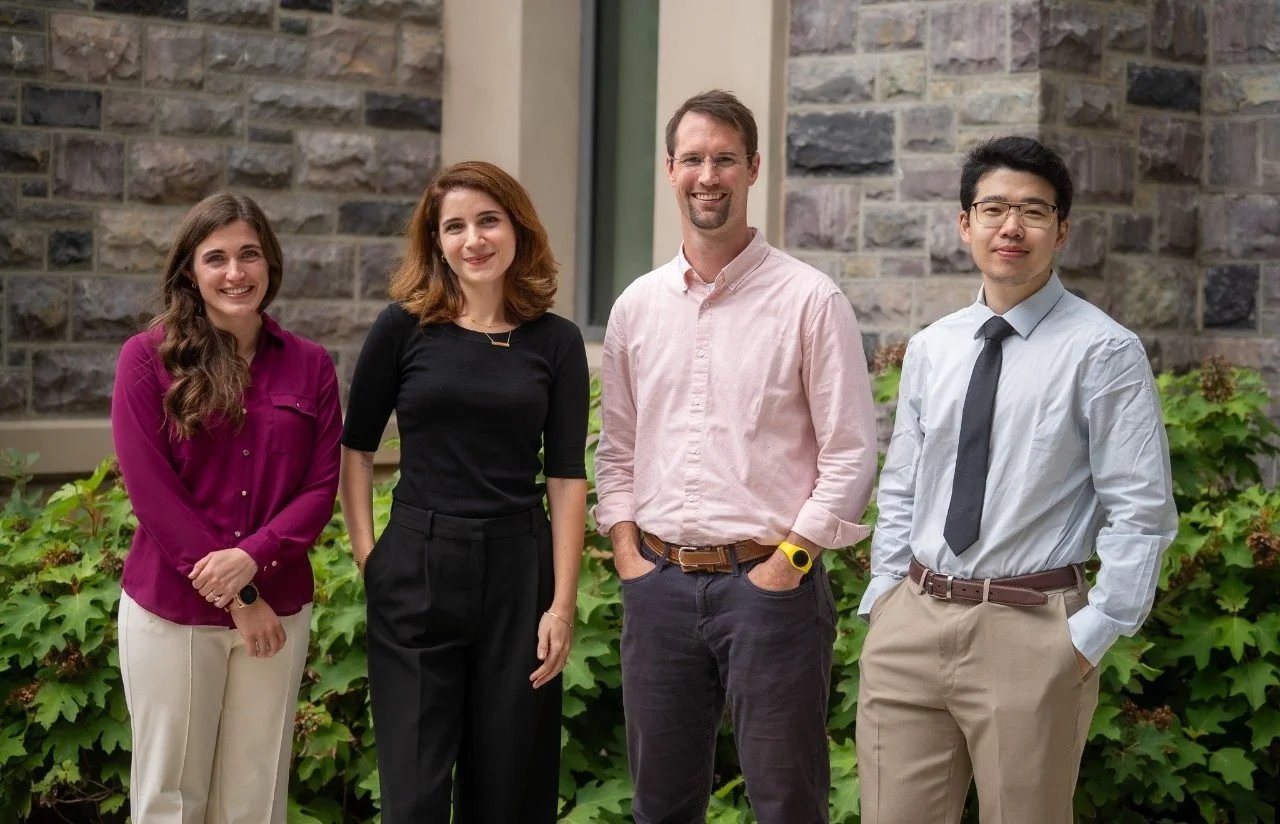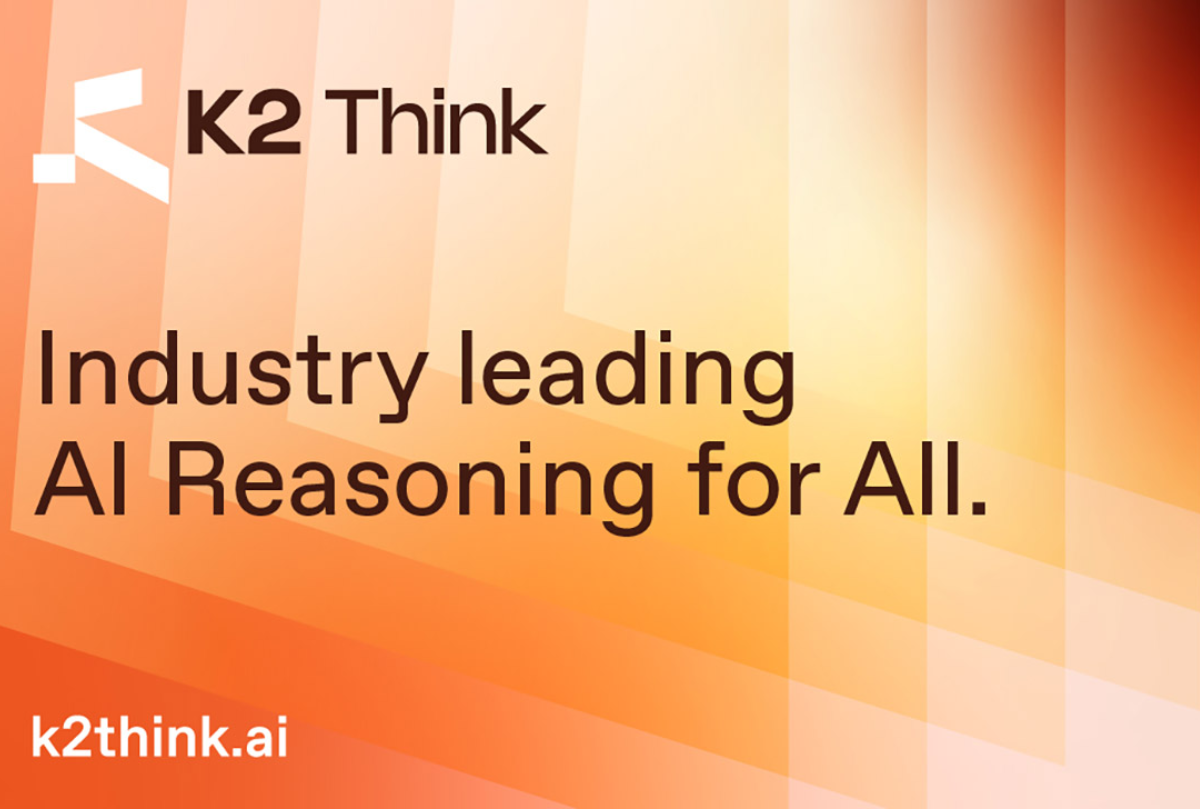Tools & Platforms
Virginia Tech expands faculty in AI, systems, and manufacturing

The Grado Department of Industrial and Systems Engineering at Virginia Tech has added four new faculty members for 2025, part of a strategy to expand expertise in high-demand fields such as data-driven decision making, advanced manufacturing, and artificial intelligence.
The department prepares students for careers in engineering through research, teaching, and industry collaboration.
New faculty join the department
The new appointments are Alkim Avsar, assistant professor in systems engineering; Eric Brubaker, assistant professor in systems engineering; Kelsey Coleman, associate professor of practice and Learning Factory director; and Yuhao Zhong, assistant professor in manufacturing engineering.
Eileen Van Aken, professor and department head, says: “We’re thrilled to welcome these outstanding faculty to our team. Our students will benefit from their perspectives, and their work will expand our capabilities in areas critical to the future of engineering and the success of our graduates.”
Research and teaching areas
Avsar, who joins from Arizona State University, earned a Ph.D. in systems engineering from Stevens Institute of Technology. Her work combines systems engineering, behavioral science, game theory, and human factors to examine how social factors influence engineering decision making. She is currently teaching a graduate course in systems engineering.
Brubaker, previously a senior complex systems engineer at NASA, holds a Ph.D. in mechanical engineering from Stanford University. His research addresses human-AI collaboration and designs for complex systems that tackle challenges in water, energy, transportation, and healthcare. He is teaching AI for systems engineering.
Coleman, formerly at Eaton Corporation, manages workforce development programs and directs the Learning Factory, which provides students with hands-on training in areas such as additive manufacturing, robotics, and digital factory systems.
Zhong, who completed his Ph.D. at Texas A&M University, focuses on data science applications in manufacturing. His research develops explainable AI and computer vision tools to improve quality, safety, and performance in Industry 5.0 environments.
The ETIH Innovation Awards 2026
Tools & Platforms
11 companies in Czechia that are harnessing the power of AI

For many businesses, the challenge isn’t a lack of information but finding the right detail in a sea of documents. Prague-based Phi Technologies addresses this with PhiBox, an AI-powered platform that scans, interprets, and searches vast collections of paperwork to deliver precise answers in seconds. Powered by optical character recognition, PhiBox goes beyond keyword searches to extract text, read graphs, and interpret visual data.
It already works in Czech, English, and German, making it useful for multinational teams. From law firms handling discovery documents to corporations managing compliance records, PhiBox turns administrative drudgery into accessible, actionable knowledge — showing how AI can transform information overload into real business value.
Tools & Platforms
Indonesia Drafts Stricter AI Rules Amid Rising Deepfake Concerns

TLDRs;
- Indonesia drafts stricter AI regulations, targeting deepfakes as Nezar Patria urges platforms to provide free detection tools.
- Deepfake content has surged 550% in five years, raising alarms over misinformation and digital safety.
- Jakarta’s policies align with global efforts, following China’s watermarking rules and EU’s proposed AI transparency laws.
- The detection battle remains tough, as deepfake creation tools advance faster than available verification technology.
Indonesia is intensifying its push for tighter artificial intelligence (AI) regulation as concerns over deepfakes continue to mount.
At an event in Jakarta on September 10, Nezar Patria, the country’s deputy minister for communications and digital, called on major technology companies to provide free tools that help users identify AI-generated content.
Patria pointed to research from Sensity AI showing a staggering 550% rise in deepfake content over the past five years. He warned that the actual scale could be much larger, given the rapid accessibility of generative AI tools. According to him, while the technology behind deepfakes is advancing rapidly, ordinary users lack the resources to verify what they see online.
Tech Giants Called to Step Up
The Indonesian government believes major platforms such as Google, Meta, and others already have the algorithms and computational capacity to deploy large-scale detection systems. What is missing, Patria argued, is public access to these tools.
“Detection capabilities shouldn’t be locked away behind private walls,” Patria emphasized, suggesting that transparency tools must be integrated into the platforms millions rely on daily.
By offering detection features for free, companies could help users spot hoaxes, misinformation, and manipulated videos before they spread widely.
Indonesia Aligns With Global AI Regulation
Indonesia’s move mirrors broader international efforts to confront the deepfake challenge. China already requires watermarks on AI-generated content, while the European Union has proposed new laws mandating clear labeling and transparency for synthetic media.
Data shows that more than 69 countries have introduced over 1,000 AI-related policy proposals, many aimed at reducing risks associated with misinformation and harmful synthetic content. Jakarta’s approach signals that Southeast Asia’s largest economy intends to play an active role in shaping ethical AI use, not just within its borders but as part of a global movement.
Indonesia already enforces digital safety measures through the ITE Law and the PDP Law. The government is now drafting a new set of rules specifically focused on ethical and responsible AI deployment, positioning itself among nations prioritizing both innovation and public protection.
A Race Between Creation and Detection
Despite the urgency, experts note that detection technologies face an uphill battle. The development of generative adversarial networks (GANs) has made creating realistic deepfakes faster and cheaper than ever. In contrast, detection systems must constantly evolve to keep pace with new manipulation techniques.
Even institutions like the U.S. Defense Advanced Research Projects Agency (DARPA) are investing heavily in deepfake detection, underscoring the scale of the technical challenge. Indonesia’s demand for free tools is therefore not only about user empowerment but also about bridging a critical accessibility gap.
As the world witnesses more governments demanding transparency in AI, Indonesia’s regulatory push adds weight to the argument that AI innovation must be balanced with safeguards against misuse. For now, the success of these measures will depend on how tech giants respond, and whether they are willing to place public safety ahead of commercial advantage.
Tools & Platforms
MBZUAI and G42 Launch K2 Think: Compact AI Model Redefining Advanced Reasoning

K2 Think embodies a new approach to building smarter, more efficient AI. With just 32 billion parameters, it outperforms flagship reasoning models that are 20X larger.
The Institute of Foundation Models at Mohamed bin Zayed University of Artificial Intelligence (MBZUAI ) and G42 have announced the launch of K2 Think, a leading open-source system for advanced AI reasoning.
K2 Think embodies a new approach to building smarter, more efficient AI. With just 32 billion parameters, it outperforms flagship reasoning models that are 20X larger. This breakthrough in parameter efficiency makes K2 Think a powerful alternative for advanced reasoning, redefining what is possible with compact architectures.
Built on six pillars of innovation, K2 Think represents a new class of reasoning model. It employs long chain-of-thought supervised fine-tuning to strengthen logical depth, followed by reinforcement learning with verifiable rewards to sharpen accuracy on hard problems. Agentic planning allows the model to decompose complex challenges before reasoning through them, while test-time scaling techniques further boost adaptability. In addition, K2 Think will soon be available on Cerebras’ wafer-scale, inference-optimized compute platform, enabling researchers and innovators worldwide to push the boundaries of reasoning performance at lightning-fast speed. With speculative decoding optimized for Cerebras hardware, K2 Think will achieve unprecedented throughput of 2,000 tokens per second, making it both one of the fastest and most efficient reasoning systems in existence.
K2 Think ranks among the industry’s top reasoning systems, leading all open-source models in math performance across AIME ’24/’25, HMMT ’25, and OMNI-Math-HARD.
More than a technical achievement, K2 Think is a defining moment for AI in the UAE. It reflects how open innovation and close public–private partnerships can position Abu Dhabi as a global leader in AI, demonstrating that the future of reasoning will be shaped not only by size, but by ingenuity and collaboration.
“The new global benchmark set by K2 Think underscores the pioneering excellence of MBZUAI’s Institute of Foundation Models initiative, an expedited pathway for global collaboration and cutting-edge research. It is also an example of the UAE’s commitment to building advanced systems that are developed by our institutions and shared with the world – ultimately progressing technically groundbreaking, practical, and scalable innovations with transformative global impact.”
-His Excellency Khaldoon Khalifa Al Mubarak, Chairman of MBZUAI’s Board of Trustees and Member of the Artificial Intelligence and Advanced Technology Council (AIATC)
“K2 Think has shifted the AI reasoning paradigm from ‘bigger is better’ to ‘smarter is better’. MBZUAI, supported by the UAE ecosystem, is pushing the AI frontier with technology that is open, efficient and highly capable. By proving that smaller, more resourceful models can rival the largest reasoning systems, this milestone marks the beginning of the next wave of AI innovation.”
-Peng Xiao, MBZUAI Board Member, Council Member of Abu Dhabi’s AI and Advanced Technology Council, and Group CEO, G42
Unlike most “open” AI models that stop at releasing weights, K2 Think is fully open source — from training data and parameter weights to software code for deployment and test-time optimization. This new level of transparency ensures that every step of how the model learns to reason can be studied, reproduced, and extended by the global research community.
“K2 Think, developed by MBZUAI’s Institute of Foundation Models, is a significant advancement for the global AI research and development community. By delivering these advances in a fully transparent framework, we are ushering in a new era of cost-effective, reproducible and accountable AI. For an institution just five years young, we are immensely proud of our global researchers, engineers, and teams who are advancing science and technology with ingenuity and a pioneering spirit.”
-Professor Eric Xing, MBZUAI President and University Professor
K2 Think builds on a growing family of UAE-developed open-source models, including Jais (the world’s most advanced Arabic LLM), NANDA (Hindi), and SHERKALA (Kazakh), and extends the pioneering legacy of K2-65B, the world’s first fully reproducible open-source foundation model released in 2024.
K2 Think is available today at k2think.ai and on Hugging Face .
-

 Business2 weeks ago
Business2 weeks agoThe Guardian view on Trump and the Fed: independence is no substitute for accountability | Editorial
-
Tools & Platforms1 month ago
Building Trust in Military AI Starts with Opening the Black Box – War on the Rocks
-

 Ethics & Policy2 months ago
Ethics & Policy2 months agoSDAIA Supports Saudi Arabia’s Leadership in Shaping Global AI Ethics, Policy, and Research – وكالة الأنباء السعودية
-

 Events & Conferences4 months ago
Events & Conferences4 months agoJourney to 1000 models: Scaling Instagram’s recommendation system
-

 Jobs & Careers2 months ago
Jobs & Careers2 months agoMumbai-based Perplexity Alternative Has 60k+ Users Without Funding
-

 Podcasts & Talks2 months ago
Podcasts & Talks2 months agoHappy 4th of July! 🎆 Made with Veo 3 in Gemini
-

 Education2 months ago
Education2 months agoMacron says UK and France have duty to tackle illegal migration ‘with humanity, solidarity and firmness’ – UK politics live | Politics
-

 Education2 months ago
Education2 months agoVEX Robotics launches AI-powered classroom robotics system
-

 Funding & Business2 months ago
Funding & Business2 months agoKayak and Expedia race to build AI travel agents that turn social posts into itineraries
-

 Podcasts & Talks2 months ago
Podcasts & Talks2 months agoOpenAI 🤝 @teamganassi

